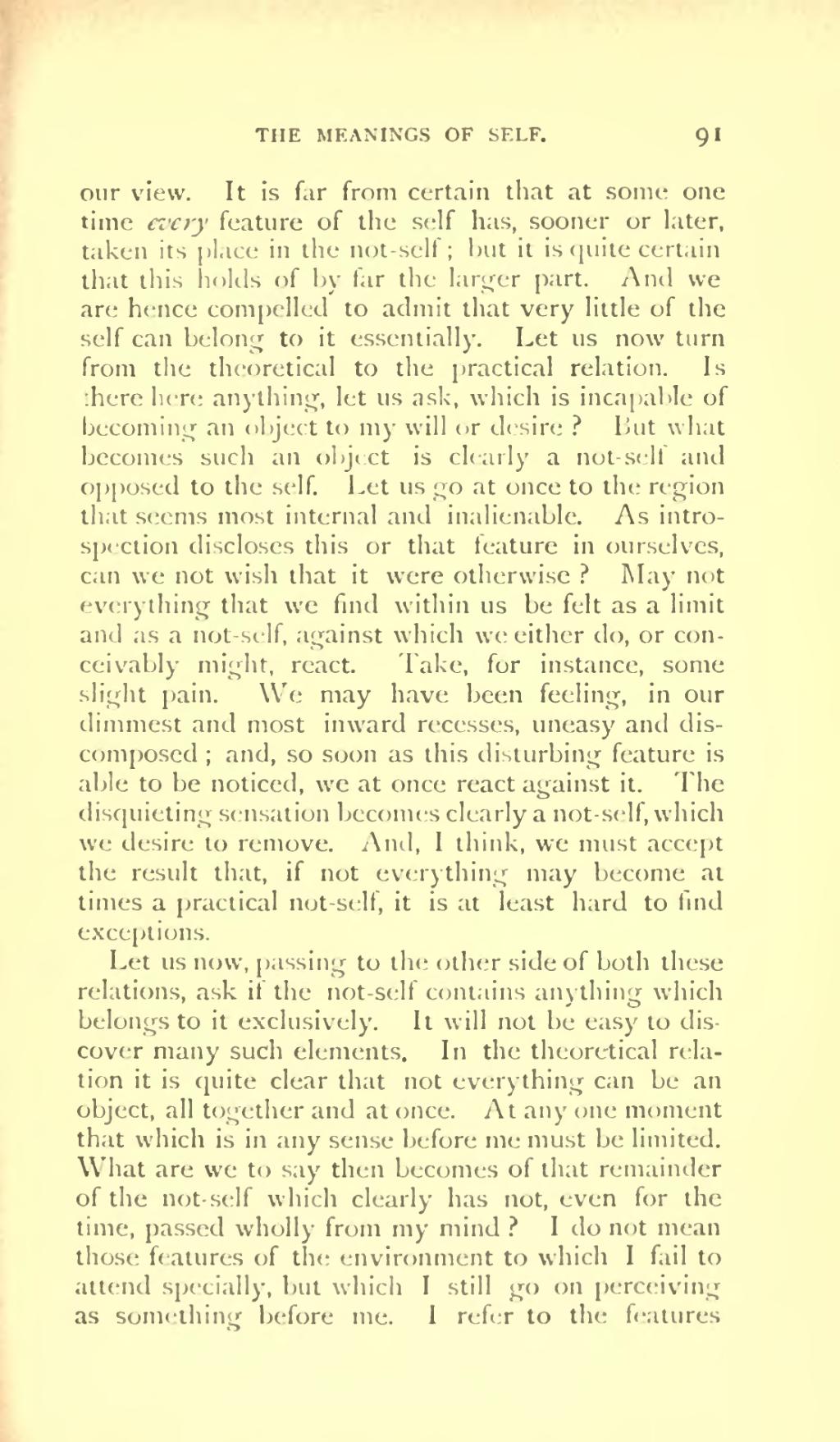our view. It is far from certain that at some one time every feature of the self has, sooner or later, taken its place in the not-self; but it is quite certain that this holds of by far the larger part. And we are hence compelled to admit that very little of the self can belong to it essentially. Let us now turn from the theoretical to the practical relation. Is there here anything, let us ask, which is incapable of becoming an object to my will or desire? But what becomes such an object is clearly a not-self and opposed to the self. Let us go at once to the region that seems most internal and inalienable. As introspection discloses this or that feature in ourselves, can we not wish that it were otherwise? May not everything that we find within us be felt as a limit and as a not-self, against which we either do, or conceivably might, react. Take, for instance, some slight pain. We may have been feeling, in our dimmest and most inward recesses, uneasy and discomposed; and, so soon as this disturbing feature is able to be noticed, we at once react against it. The disquieting sensation becomes clearly a not-self, which we desire to remove. And, I think, we must accept the result that, if not everything may become at times a practical not-self, it is at least hard to find exceptions.
Let us now, passing to the other side of both these relations, ask if the not-self contains anything which belongs to it exclusively. It will not be easy to discover many such elements. In the theoretical relation it is quite clear that not everything can be an object, all together and at once. At any one moment that which is in any sense before me must be limited. What are we to say then becomes of that remainder of the not-self which clearly has not, even for the time, passed wholly from my mind? I do not mean those features of the environment to which I fail to attend specially, but which I still go on perceiving as something before me. I refer to the features
